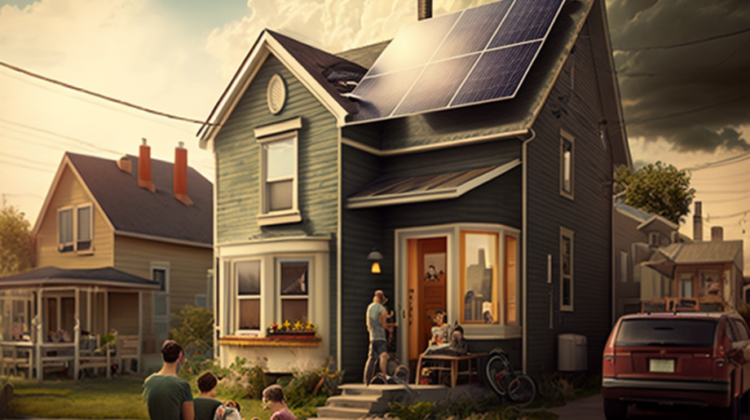
Energy efficiency is crucial in modern society, as it helps to reduce the carbon footprint, save money on energy bills, and create a more sustainable future for all. There are numerous ways to make your home more energy efficient, and in this article, we will outline 21 ways to improve your home’s energy efficiency.
- Replace traditional incandescent light bulbs with energy-efficient LED bulbs. LED bulbs use up to 80% less energy than conventional bulbs and last much longer.
- Install a programmable thermostat to control the temperature of your home automatically. This will help to reduce energy consumption by adjusting the temperature when you are away or sleeping.
- Seal any air leaks around windows and doors. This will prevent hot or cold air from escaping and reduce energy consumption.
- Install energy-efficient windows. These windows are designed to keep heat inside during winter and keep cool air inside during summer.
- Install ceiling fans to circulate air in your home. This will reduce the need for air conditioning during the summer months.
- Insulate your attic to keep heat inside during winter and cool air inside during summer.
- Install a high-efficiency HVAC system to heat and cool your home.
- Install a solar water heater to reduce energy consumption in heating water.
- Use natural light whenever possible. Open blinds and curtains during the day to let sunlight in and reduce the need for artificial lighting.
- Install low-flow showerheads and faucets to reduce water consumption.
- Use a front-loading washing machine, which uses less water and energy than a top-loading machine.
- Choose energy-efficient appliances, such as refrigerators, dishwashers, and washing machines.
- Use a clothesline or drying rack to dry clothes instead of using a dryer.
- Use a microwave or toaster oven instead of a full-sized range when possible.
- Unplug electronics when they are not in use. Many electronics continue to use energy even when they are turned off.
- Use a power strip to turn off electronics when they are not in use.
- Plant trees and shrubs around your home to provide shade during summer and reduce the need for air conditioning.
- Use a programmable irrigation system to water your lawn and garden. This will prevent overwatering and reduce water consumption.
- Use low-VOC paint to improve indoor air quality.
- Use a compost bin to reduce food waste and create nutrient-rich soil for your garden.
- Use energy-efficient light fixtures and appliances to reduce energy consumption.
It’s important to note that some of these energy-efficient measures may require an upfront investment, but the long-term savings and benefits outweigh the initial cost. For example, installing energy-efficient windows or an HVAC system may seem expensive, but the savings on energy bills will pay off over time.
In addition to saving money and reducing your carbon footprint, making your home more energy efficient can also increase its value. As more people become aware of the importance of energy efficiency, houses designed to be energy-efficient are becoming more in demand.
Another benefit of making your home more energy efficient is improving indoor air quality. Using low-VOC paint and choosing energy-efficient appliances can reduce the number of harmful chemicals and pollutants in your home.
It’s important to note that while these energy-efficient measures are a great starting point, there are many other ways to make your home more sustainable. For example, you can start composting, install a rainwater harvesting system, or switch to renewable energy sources such as solar or wind power.
When making changes to your home, it’s essential to consider your individual needs and circumstances. Some changes may not be feasible or necessary for everyone, so it’s important to prioritize and make changes within your budget and lifestyle.
By implementing the 21 energy-efficient measures outlined in this article, you can reduce your carbon footprint, save money on energy bills, and create a more comfortable and sustainable home for you and your family. Not only will you be doing your part to protect the environment, but you’ll also enjoy the long-term benefits of a more energy-efficient home.